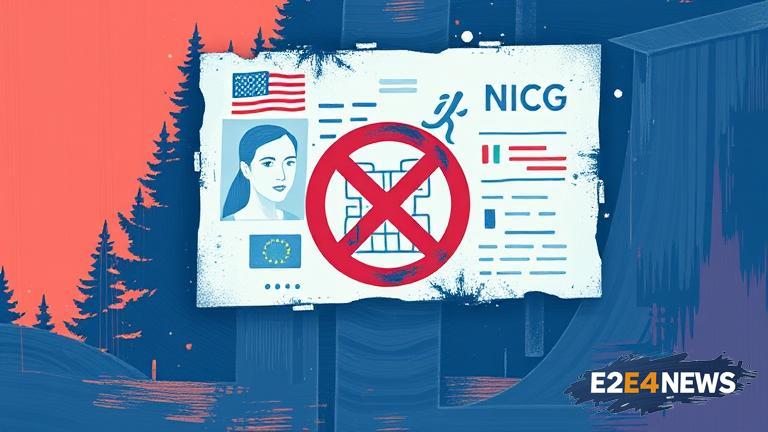The National Instant Background Check System (NICS) is a crucial component of the gun control landscape in the United States. Recently, the media has begun to explore the idea of tracking NICS denials, which has sparked a heated debate on the pros and cons of such a system. On one hand, tracking NICS denials could potentially help prevent guns from falling into the wrong hands, thereby reducing the risk of gun violence. On the other hand, some argue that such a system could infringe upon the Second Amendment rights of law-abiding citizens. The media is now starting to ask if tracking NICS denials might be a good thing, considering the potential benefits and drawbacks. Some experts argue that tracking NICS denials could help identify individuals who are attempting to purchase guns illegally, allowing authorities to take proactive measures to prevent gun violence. Others, however, are concerned that such a system could be used to unfairly target certain groups, such as minorities or individuals with mental health issues. The debate surrounding NICS denials is complex and multifaceted, with various stakeholders weighing in on the issue. Gun control advocates argue that tracking NICS denials is a necessary step in reducing gun violence, while gun rights advocates claim that such a system would be an overreach of government authority. The media is now playing a crucial role in shaping the narrative around NICS denials, with some outlets arguing that tracking denials could be a good thing. However, others are sounding a cautionary note, warning that such a system could have unintended consequences. As the debate continues to unfold, it is essential to consider the potential implications of tracking NICS denials. Some of the key concerns include the potential for abuse of power, the risk of false positives, and the impact on law-abiding citizens. Despite these concerns, some experts believe that tracking NICS denials could be a valuable tool in the fight against gun violence. The use of technology, such as artificial intelligence and data analytics, could help improve the accuracy and efficiency of the NICS system. Additionally, tracking NICS denials could help identify trends and patterns in gun violence, allowing authorities to develop more effective strategies for prevention. However, it is crucial to ensure that any system for tracking NICS denials is fair, transparent, and respectful of individual rights. The media will continue to play a vital role in shaping the narrative around NICS denials, and it is essential to consider multiple perspectives and viewpoints. As the debate continues to evolve, it is likely that we will see a more nuanced and informed discussion around the pros and cons of tracking NICS denials. Ultimately, the decision to track NICS denials will depend on a careful weighing of the potential benefits and drawbacks. The media, policymakers, and stakeholders must work together to ensure that any system for tracking NICS denials is fair, effective, and respectful of individual rights. The conversation around NICS denials is an important one, and it is essential to approach the issue with a critical and nuanced perspective. By considering multiple viewpoints and evaluating the potential implications, we can work towards a more informed and effective approach to gun control. The media will continue to play a crucial role in shaping the narrative around NICS denials, and it is essential to stay informed and engaged in the debate. As the issue continues to unfold, it is likely that we will see a more detailed and nuanced discussion around the pros and cons of tracking NICS denials. The use of data and analytics could help improve our understanding of the issue, and the media will be essential in providing context and insights. The debate surrounding NICS denials is complex and multifaceted, and it is essential to consider the potential implications of tracking denials. By evaluating the pros and cons and considering multiple perspectives, we can work towards a more informed and effective approach to gun control.





